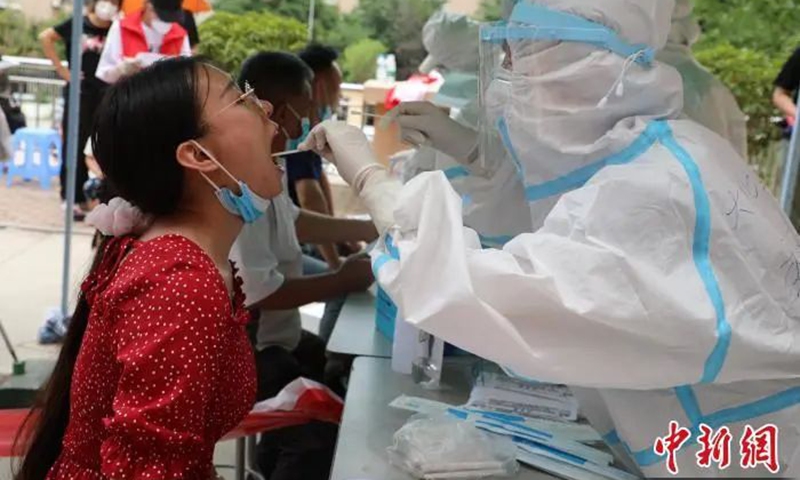Confirmed cases of COVID-19 decline in Xinjiang, Dalian
By Xu Keyue Source: Global Times Published: 2020/8/2 20:03:40
Sporadic regional outbreaks may continue: chief epidemiologist

Dalian File Photo: cnsphoto
Two COVID-19 outbreak areas on the Chinese mainland - Northwest China's Xinjiang Uygur Autonomous Region and the city of Dalian in Northeast China - have seen a decline in new COVID-19 cases for three days, showing positive signs of epidemic control. China's top epidemiologist stressed that regional epidemic rebounds across the country are likely to continue.Xinjiang reported 30 new infections on Saturday, dropping from Thursday's 112 cases. A rebound occurred in the region on July 16 after its capital city—Urumqi—reported five local infections, ending a hiatus of more than 140 days.
The city of Dalian in Northeast China's Liaoning Province registered three cases on Saturday, while 11 and eight cases were recorded on Thursday and Friday, respectively.
If such a decline continues, it would indicate the outbreaks in the two areas are easing, analysts said.
The Hong Kong Special Autonomous Region, on the other hand, is fighting a severe situation as the city on Sunday reported 115 local infections, marking the 12th consecutive day of new cases surpassing 100.
Zeng Guang, chief epidemiologist of the Chinese Center for Disease Control and Prevention, told the Global Times on Sunday that "sporadic outbreaks across the country may continue to take place every so often for quite a while."
Zeng said that rebounds are normal as the world is still in the middle of a pandemic, and warned the public should continue epidemic control methods to reduce transmission risks.
Many analysts said that human beings will live with the virus for a few years or even longer. "The pandemic is a once-in-a-century health crisis, the effects of which will be felt for decades to come," said WHO Director-General Tedros Adhanom Ghebreyesus at a meeting of the Emergency Committee on COVID-19 on Friday.
The rebounds in Beijing and Dalian seem to be related to cold chain food products, while patient zero in Xinjiang is unclear.
"Generally, it takes at least three years to understand a new virus, and at present the knowledge of the novel coronavirus is really limited," Zeng said, noting the existence and transmission patterns of the virus are still emerging.
But Zeng reassured the public that China's ability to detect and control the virus in its early stage is also developing.
People first thought the virus was only transmitted through the respiratory tract, now it seems that it can also be spread through cold chain products and environmental pollution, which increases the risk of imported infections, Zeng said.
In response to such challenges, coronavirus testing on imported cold chain food products is now being conducted, and large food markets are being asked to test their environments and employees every week.
Analysts pointed out that once domestic cases occur, China can arrange resources to carry out large-scale screening and targeted control methods, such as sealing off residential compounds to control transmission.
The outbreak in Xinjiang was serious at first, with more than 100 cases a day in its initial stage, but massive testing helped identify patients and silent carriers to prevent the situation from becoming critical, Qiu Haibo, an expert from the medical treatment group sent to assist Xinjiang under the National Health Commission, told the Global Times.
Half of the confirmed COVID-19 patients in Xinjiang were silent carriers, making it easier for them to recover after they received treatment, Qiu said, noting that a quick response helped the region bring the situation under control.
Newspaper headline: Cases drop in Xinjiang, Dalian
Posted in: SOCIETY